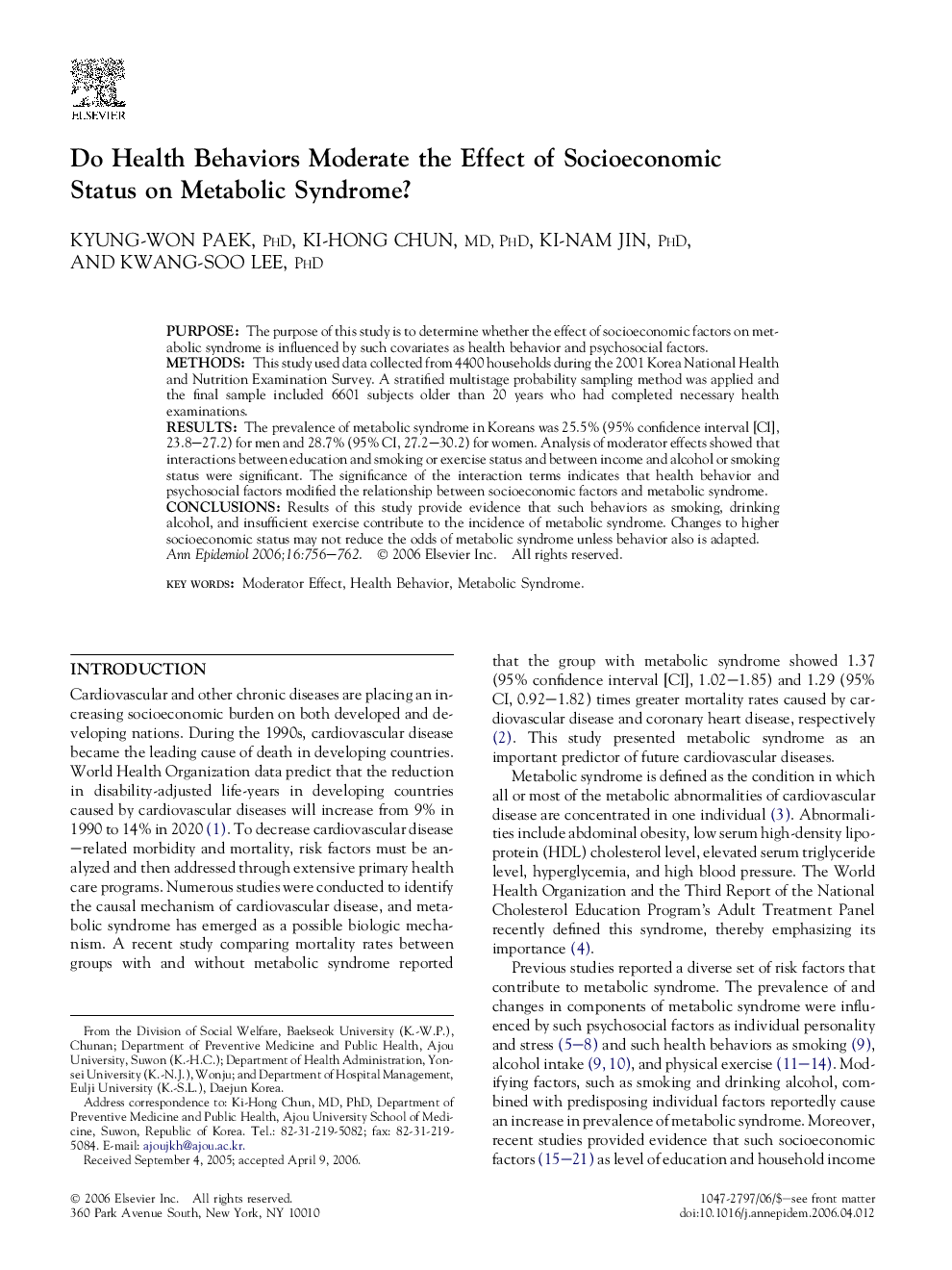| Article ID | Journal | Published Year | Pages | File Type |
|---|---|---|---|---|
| 3445628 | Annals of Epidemiology | 2006 | 7 Pages |
PurposeThe purpose of this study is to determine whether the effect of socioeconomic factors on metabolic syndrome is influenced by such covariates as health behavior and psychosocial factors.MethodsThis study used data collected from 4400 households during the 2001 Korea National Health and Nutrition Examination Survey. A stratified multistage probability sampling method was applied and the final sample included 6601 subjects older than 20 years who had completed necessary health examinations.ResultsThe prevalence of metabolic syndrome in Koreans was 25.5% (95% confidence interval [CI], 23.8–27.2) for men and 28.7% (95% CI, 27.2–30.2) for women. Analysis of moderator effects showed that interactions between education and smoking or exercise status and between income and alcohol or smoking status were significant. The significance of the interaction terms indicates that health behavior and psychosocial factors modified the relationship between socioeconomic factors and metabolic syndrome.ConclusionsResults of this study provide evidence that such behaviors as smoking, drinking alcohol, and insufficient exercise contribute to the incidence of metabolic syndrome. Changes to higher socioeconomic status may not reduce the odds of metabolic syndrome unless behavior also is adapted.
